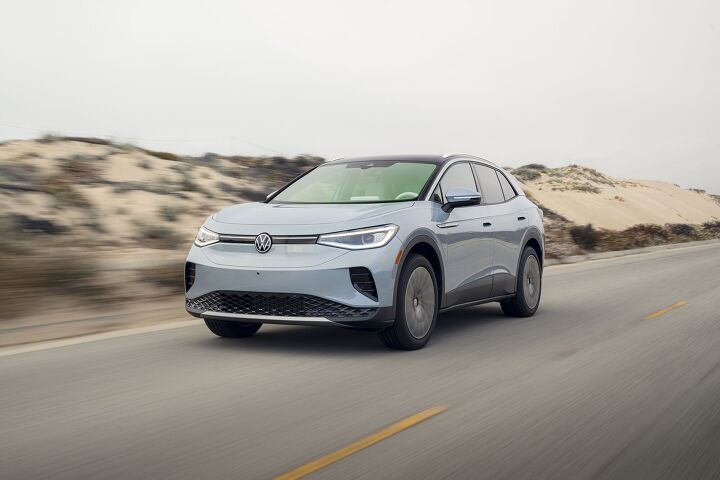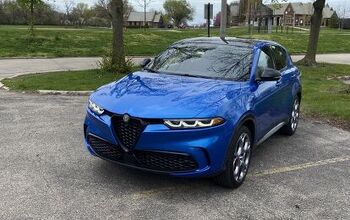This Volkswagen EV Now Comes with Full Tax Credit Benefits
Volkswagen has recently announced that their MY23 and the upcoming MY24 models of the ID.4, equipped with SK On battery components, will be eligible for the full $7,500 Federal Tax Credit. This development makes these models of the ID.4, which start at a base MSRP of $38,995 before the tax credit, a more budget-friendly option in the electric SUV segment. However, it's important to note that the eligibility of MY24 ID.4 models is conditional on future battery production and may be subject to change.
Unique Position of Volkswagen in the EV Industry
Volkswagen stands out as the only foreign car manufacturer currently offering a full battery electric vehicle in the U.S. that qualifies for the full Federal Tax credit. This achievement is largely due to the local assembly and sourcing practices of the company. Beginning in 2024, eligible customers will have the option to apply the tax credit directly at the point of sale as a down payment by transferring the credit to participating dealers.
Sales Performance and Impact of the ID.4
The ID.4 has established itself as a preferred choice in the EV market, attracting new customers to both the Volkswagen brand and to electric mobility. In 2023, it ranked as the fifth best-selling EV in the United States, with a sales increase of 84 percent compared to 2022. Pablo Di Si, President and CEO of Volkswagen Group of America, emphasized the affordability of the ID.4 and how the tax credit enhances its accessibility. He also highlighted Volkswagen's commitment to localizing assembly in Tennessee and investing in battery production, component manufacturing, and innovation.
Specifications of the 2023 Volkswagen ID.4
The 2023 ID.4 is available for sale with two battery sizes and two powertrains. The Standard model features a 62kWh battery with an EPA-estimated range of 209 miles, while the ID.4 Pro has an 82 kWh battery, offering an EPA-estimated range of 275 miles. The ID.4 AWD Pro models boast up to 295 horsepower and an all-wheel-drive capability, with an EPA-estimated range of 255 miles.
Final Considerations
It's important for potential buyers to understand that not all vehicles or customers will qualify for the tax credit. Only specific models with certain battery components are eligible. Additionally, the tax credit is only applicable on the original purchase of a qualifying vehicle and cannot be used for leasing. Customers are encouraged to consult a tax advisor for eligibility based on their individual tax situation. The tax credit program is subject to limitations and changes that are beyond Volkswagen's control.
This article was co-written using AI and was then heavily edited and optimized by our editorial team.
More by TTAC Staff
Latest Car Reviews
Read moreLatest Product Reviews
Read moreRecent Comments
- Jetcal 'there will be one-and two-blade variants"- What is the blade he's referring to? Is that another term for the rotor?
- Jalop1991 stick shift knowledge is important.But the simple fact is, kids today don't even want to drive. My son, now 25, didn't drive until he was...18? something like that. Was NOT interested. But then he found a girl...And even if the car is for the teen to use for school and related activities, it should be fuel efficient--because the parent is paying the gas for that.
- MKizzy My humble opinion.When it comes to waiting to go big on BEVs, Toyota has little to worry about as long as it remains attuned to the needs of the markets where it does business and can quickly pivot to compete once the next generation of BEVs with improved battery and charging tech is ready for prime time. Toyota has enough of a loyal customer base who would happily wait on them and snap up as many Toyota/Lexus BEVs as they can build. It's main threat is competition-based and whether another automaker can build a full lineup of high quality, uncomplicated, and reliable BEVs to entice and hang on to them.Mazda is a niche automaker that is counting on continuing to differentiate itself via its blend of near-luxury performance and is hopeful regulatory environments remain accepting of ICE to PHEV variants to maintain its uniqueness. Else I don't see how Mazda can differentiate itself enough to survive in a world of 300+ hp BEVs with cookie cutter performance and giant fancy touchscreens. Subaru is in the worst position, at least in the U.S.. It's customer base is more likely to be progressive and solely interested in BEVs and Subie has nothing substantial to offer them. I can see Kia, and perhaps Rivian as their biggest threats if their future smaller/cheaper offerings are a hit. Also, in a market filled with AWD Crossovers, the only unique characteristics Subaru can hang its hat on is its weirdly bland styling and somewhat affordable pricing versus competitors.
- Henry It's pretty clear that Toyota's hybrid strategy is paying off handsomely. They sell every one they make, maintain pricing discipline, and avoided over-investing in EV technology when the market and the infrastructure were clearly not ready.
- Ollicat something practical - since your teen SHOULD pay their own gas. I would think a used Jetta or Civic


































Comments
Join the conversation